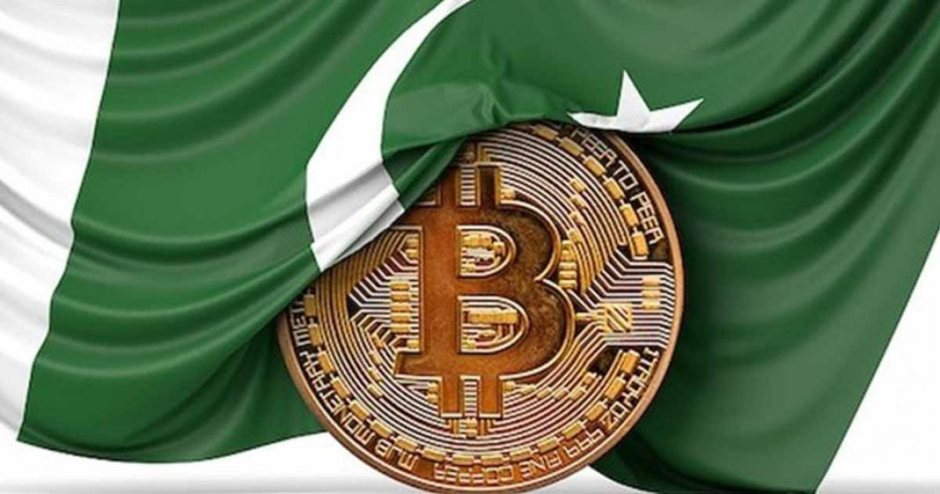Pakistan’s Investment Shock: Is Crypto the Real Threat to Gold and Stocks?
Pakistan’s financial markets are witnessing unprecedented movements, sparking intense debate among investors about the best places to allocate their money. Pakistan’s Investment Shock is making waves, with the stock market soaring, gold hitting record highs, and crypto emerging as an increasingly influential player in the country’s financial landscape. So, the big question remains: Is crypto a real threat to gold and stocks, or is it just another passing trend?
The Explosive Growth of Pakistan’s Stock Market
Pakistan’s stock market has experienced remarkable growth, with the KSE-100 Index surging by 84% in 2024 alone. The market continues to climb, fueled by investor optimism and improving economic conditions. Analysts note that stocks, particularly those from blue-chip companies and index funds, offer a long-term investment opportunity with solid returns.
According to investment banker Mustafa Fahim, it’s advisable to allocate 60-70% of a portfolio to stocks. This is because the Pakistani market still has substantial room for growth, and with the IMF review boosting investor confidence, some predict another 35-40% return in the coming year. Such an upside makes stocks a more attractive option compared to other assets like gold, which cannot provide the same level of growth potential.

Gold: The Traditional Safe Haven Asset
Gold has long been considered a reliable safe haven during times of economic uncertainty. The precious metal’s stability and liquidity have made it a popular choice for investors, and it recently surged past Rs325,000 per tola, reflecting the ongoing rally. However, is gold still the best asset to invest in today?
Analysts like Shankar Talreja suggest that gold’s rally may be slowing down, with future gains expected to be less significant than those of the past year. While gold provides a sense of security and a stabilizing force in a portfolio, its long-term returns have historically underperformed compared to stocks. As a result, relying too heavily on gold may cause investors to miss out on more profitable opportunities in other asset classes, such as equities.
Crypto: The Wild Card in Pakistan’s Investment Scene
Now, let’s turn to crypto, which has been gaining significant traction despite being largely unregulated in Pakistan. Reports suggest that 20 million Pakistanis are engaged in the crypto space, though many of them are using it primarily for transactions rather than as an investment vehicle. The country’s banking restrictions have made cryptocurrencies an attractive alternative for individuals seeking greater financial freedom.
However, the crypto market remains highly volatile. Shankar Talreja warns about the extreme risks associated with investing in digital assets, especially given the lack of regulation. On the other hand, Mustafa Fahim sees an opportunity for younger investors, suggesting that they can afford to allocate a small portion of their portfolio—around 10%—to digital assets like Bitcoin, the most established cryptocurrency.
The wild fluctuations of Bitcoin and other digital currencies make them a high-risk, high-reward investment. While some view it as a hedge against inflation and economic instability, others are cautious about the unpredictable nature of the market. In this environment, crypto has emerged as an investment asset that demands careful consideration.

Financial Literacy: The Key to Unlocking Investment Opportunities
One of the core issues affecting Pakistan’s investment landscape is the lack of financial literacy. Many Pakistanis still have a deep-rooted belief that traditional assets like gold and real estate are the safest investments, and this mindset has limited broader participation in the stock market. Financial education remains a significant barrier, preventing many from exploring alternatives like stocks or crypto.
Moreover, tax concerns discourage many potential investors from entering the stock market, as navigating Pakistan’s complex taxation system can be daunting. These barriers have led to a preference for tangible assets like gold and property, leaving investors hesitant to diversify into other, potentially more profitable, asset classes.
The Crypto Adoption Debate: A Misleading Statistic?
While 20 million Pakistanis are reportedly using crypto, Mustafa Fahim believes this figure may be misleading. According to him, many people are not buying or holding crypto as an investment. Instead, they are using digital assets primarily for transactions—especially due to the limitations imposed by the country’s banking system.
If crypto were to become legalized in Pakistan, its adoption could increase dramatically. However, Fahim suggests that the legalization of cryptocurrencies could also introduce taxation, which might significantly alter investor behavior and reduce the appeal of crypto for some individuals. The dynamics of crypto adoption are still in flux, and how the government chooses to regulate it will play a crucial role in determining its future in Pakistan.

The Verdict: What Should Investors Do in Pakistan?
So, where should investors park their money in this rapidly changing financial environment? Here’s a breakdown of the options:
- Gold remains a safe bet for those seeking stability. It’s a traditional choice that continues to provide a hedge against economic uncertainty.
- Stocks are the clear winner for those looking for steady growth and higher returns. The Pakistani market has shown impressive gains and, with continued investor optimism, is set to deliver more substantial returns in the near future.
- Crypto is the wild card. It offers high-risk, high-reward potential, but investors should be cautious. Allocating a small portion of one’s portfolio to Bitcoin or other established cryptocurrencies may make sense for younger investors with a higher risk tolerance.
Ultimately, the choice between gold, stocks, and crypto depends on an investor’s risk appetite and investment goals. The landscape of Pakistan’s investment options is rapidly evolving, and those who can adapt to changing conditions will likely be the ones who benefit the most.

Conclusion: Navigating Pakistan’s Investment Shock
In conclusion, Pakistan’s Investment Shock has created a unique and exciting opportunity for investors. The market is shifting, with stocks offering strong growth potential, gold providing stability, and crypto emerging as a new force to be reckoned with. The key to success lies in financial education and making informed investment decisions based on individual circumstances and risk tolerance.
As the investment landscape continues to evolve, it’s crucial for Pakistan’s investors to stay informed and adapt to the changing dynamics of the market. Whether you’re looking for stability, growth, or high-risk opportunities, the choice is yours—just be sure to invest wisely.

